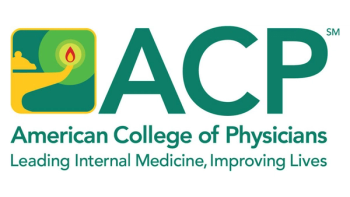
Omega-3 supplement decreases dry eye symptoms in clinical trial
Patients taking an omega-3 supplement (TheraTears Nutrition, Advanced Vision Research) had a self-reported reduction in dry eye symptoms and an increase in tear volume and tear flow compared with a group of controls who received placebos, according to a pilot trial of dry eye patients reported in the journal Cornea.
Woburn, MA-Patients taking an omega-3 supplement had a self-reported reduction in dry eye symptoms and an increase in tear volume and tear flow compared with a group of controls who received placebos, according to a pilot trial of patients with dry eye reported in the journal Cornea.
A total of 36 patients with dry eye completed the prospective, randomized, double-masked study. Patients with dry eye received a daily supplement of fish oil-containing 450 mg of eicosapentaenoic acid, 300 mg of docosahexaenoic acid, and 1,000 mg of flaxseed oil (TheraTears Nutrition, Advanced Vision Research)-or placebo for 90 days. At two visits (baseline and final), patients scored their symptoms on the Ocular Surface Disease Index and underwent tests, including slit-lamp examinations, breakup time, corneal staining, Schirmer type I, fluorophotometry, evaporometry, and collection of meibomian gland secretion samples.
After 90 days, 70% of the patients with dry eye who received the supplement reported having no symptoms of dry eye, compared with 7% of the patients in the placebo group. Although no significant differences were found in meibum lipid composition or aqueous tear evaporation rate between the two groups, mean tear flow was 0.10 μl/min higher, and mean tear volume was 0.94 μl higher in the supplement group compared with the placebo group.
“This study demonstrates the potential of [the omega-3-based supplement] in reducing the debilitating effects of dry eye from both the patient and physician perspective,” said James P. McCulley, MD, professor and chairman of the department of ophthalmology at the University of Texas Southwestern Medical School, Dallas, and senior author of the study. “It is particularly interesting to see these clinical results, since we know that omega-3 [fatty acids] have been shown to reduce the effects of inflammation and influence the composition of the tear film, two factors that play an important role in dry eye.”
Although this study provides interesting insight into the effects of supplementation on dry eye disease, more research should be done to understand fully how omega-3 [fatty acids] work on a cellular level, Dr. McCulley added.
Newsletter
Don’t miss out—get Ophthalmology Times updates on the latest clinical advancements and expert interviews, straight to your inbox.





























